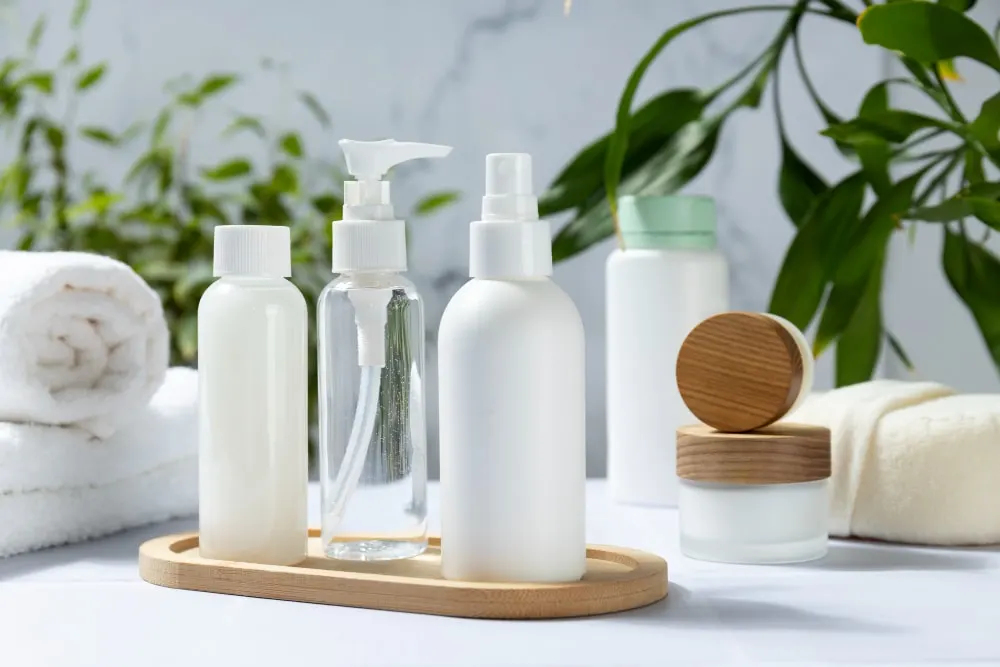Blog
The Ultimate Guide to Skin Care: Nurturing Your Natural Glow
Our skin is the body’s largest organ and acts as the first line of defense against environmental stressors, pollutants, and pathogens. Beyond its biological function, healthy skin enhances our confidence, reflects our overall wellness, and plays a central role in beauty routines across cultures. Skin care is more than a cosmetic concern—it’s a commitment to self-care and well-being.
In this comprehensive guide, we’ll explore the fundamentals of skin care, how to build a routine tailored to your skin type, common mistakes to avoid, and lifestyle factors that influence skin health.
Why Skin Care Matters
Healthy skin isn’t just about looking good—it’s a reflection of good health. Proper skin care:
- Protects against premature aging
- Prevents acne, pigmentation, and inflammation
- Boosts self-esteem and mental well-being
- Supports the skin’s natural barrier against infection and UV damage
Investing in your skin today can save you from dermatological issues and costly treatments in the future.
Know Your Skin Type
Before you build a skin care routine, understanding your skin type is crucial. Each type has different needs and tolerances:
- Normal Skin: Balanced moisture, smooth texture, and minimal imperfections.
- Oily Skin: Prone to excess sebum, shine, enlarged pores, and breakouts.
- Dry Skin: Feels tight, flaky, or rough with visible dry patches.
- Combination Skin: Oily in the T-zone (forehead, nose, chin) and dry or normal on cheeks.
- Sensitive Skin: Easily irritated by products or weather, may show redness or burning.
Knowing your skin type will help you select the right products and prevent unnecessary irritation.
The Basic Skin Care Routine
A good skin care regimen doesn’t need to be complicated or expensive. The essential routine includes three core steps:
1. Cleansing
Cleansing removes dirt, oil, sweat, and pollutants that accumulate on the skin throughout the day. Choose a gentle cleanser suitable for your skin type—gel cleansers for oily skin, cream cleansers for dry skin, and micellar water for sensitive skin.
Tip: Avoid harsh soaps and over-cleansing, which can strip your skin of natural oils.
2. Moisturizing
Moisturizers hydrate the skin and seal in moisture. They also support the skin barrier and help maintain elasticity. Even oily skin needs hydration—opt for oil-free or gel-based moisturizers.
Tip: Look for ingredients like hyaluronic acid, glycerin, ceramides, and squalane.
3. Sun Protection
Sunscreen is the most crucial step to prevent premature aging, dark spots, and skin cancer. Use broad-spectrum SPF 30 or higher daily, even on cloudy days or indoors near windows.
Tip: Apply sunscreen as the last step in your morning routine, and reapply every 2–3 hours if outdoors.
Bonus Steps for Enhanced Results
• Exfoliation (1–2 times a week)
Exfoliation removes dead skin cells, unclogs pores, and promotes skin renewal. Choose between:
- Physical exfoliants: scrubs with fine granules (avoid harsh ones like walnut shell).
- Chemical exfoliants: AHAs (like glycolic acid) and BHAs (like salicylic acid).
• Serums
Serums are concentrated treatments targeting specific concerns like aging, acne, or pigmentation. Popular serum ingredients include:
- Vitamin C: brightens and protects against sun damage.
- Retinol: promotes cell turnover and reduces wrinkles.
- Niacinamide: balances oil and reduces inflammation.
• Face Masks
Hydrating or detoxifying masks can give your skin a weekly boost. Clay masks help oily skin, while sheet masks provide hydration for dry or dull skin.
Common Skin Care Mistakes
Avoiding these mistakes can dramatically improve your results:
- Skipping sunscreen: The number one cause of aging and sun damage.
- Using too many products: Can overwhelm or irritate your skin.
- Sleeping with makeup: Clogs pores and causes breakouts.
- Over-exfoliating: Can damage the skin barrier and lead to sensitivity.
- Not patch testing new products: Risk of allergic reactions or breakouts.
Skin Care and Lifestyle
Great skin isn’t just about what you put on it—it’s also shaped by your lifestyle:
🌿 Nutrition
A balanced diet rich in antioxidants, vitamins (A, C, E), zinc, and omega-3 fatty acids supports skin health. Hydrate well by drinking plenty of water.
🛌 Sleep
During deep sleep, the body repairs skin cells. Poor sleep increases cortisol levels, leading to breakouts and dullness.
🧘 Stress Management
Chronic stress can trigger flare-ups of acne, eczema, and psoriasis. Practice meditation, yoga, or hobbies that calm the mind.
🚭 Avoid Smoking and Limit Alcohol
Smoking narrows blood vessels and depletes the skin of oxygen and nutrients. Alcohol dehydrates the skin and can worsen conditions like rosacea.
Skin Care for Every Age
• Teens
Focus on gentle cleansing and acne prevention. Avoid aggressive treatments without guidance.
• 20s–30s
Introduce antioxidants like vitamin C and start using SPF religiously. Consider retinoids in your late 20s.
• 40s–50s
Hydration and collagen support become key. Include peptides and retinoids in your routine. Regular facials and targeted treatments can help.
• 60+
Use rich moisturizers, and avoid drying ingredients like alcohol or high-strength acids. Protect fragile skin from the sun.
Natural vs. Clinical Skin Care
Both natural and lab-formulated skin care can be effective. What matters most is choosing products that are tested, non-comedogenic, and suited to your needs.
- Natural products often use plant-based ingredients but may still cause allergies.
- Clinical products are backed by research and offer targeted results, especially for concerns like acne, pigmentation, or aging.
Final Thoughts
Skin care is a personal journey. What works for someone else may not work for you—and that’s okay. Be patient, stay consistent, and adjust your routine as your skin’s needs change over time.
Taking care of your skin isn’t vanity—it’s self-respect. Your skin is your lifelong companion. Treat it with kindness, and it will reflect your inner vitality for years to come.

